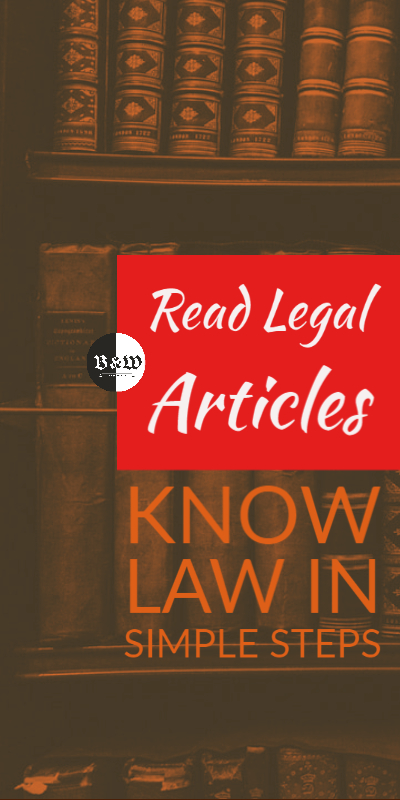What Are The Ways Of Implementing The Decree In A Civil Lawsuit | क्या आप किरायेदारों को बेदखल कर सकते हैं यदि आपको संपत्ति पर कब्जा करने का फरमान मिला है|
How Decree in Partition Suits Work? There are several practical (normal people life) conditions that effect the delivery & effectuation of decree. How various types of civil decrees are effectuated, are described here.
Pronouncing Judgments in Civil Court
When?
· After the case has been heard, judgment is to be pronounced in open court
How?
· Court to fix a day, for which the notice is also delivered to the parties
· Provided that where judgment is not pronounced at once, the court should be pronouncing it within 30 days of the conclusion of hearing. In exceptional & extraordinary circumstances, the court shall provide a future date not beyond 60 days of the conclusion of the case.
- The court should read out the order related to the issues in trial, and it’s not necessary to read out the entire judgment.
Method
· Judgment is pronounced by dictation in open court, to a short hand writer, if the Judge is empowered by High Court in this regard. The transcript of judgment such drafted, after corrections and editing, is duly signed by Judge, bearing the date of judgment & the seal of court.
Order XX for Commercial Dispute of Specified Value
[Commercial Court / Commercial Appellate Court may pronounce judgment within 90 days from the date of ‘conclusion of argument’]
Power to Pronounce Judgment Written by Judge’s Predecessor
Judgment is written by a preceding judge but remained not pronounced, can be pronounced by successor judge.
Preparation of Decree
Contents of Decree
- The decree shall agree with the judgment by (including the number of suit, names and description of parties, their respective addresses as originally set or the latest address filed before final argument).
- The decree shall contain the particulars of claim and shall clearly state the particulars of claim, and shall state the relief granted or other determination of suit.
- The decree shall also state the cost incurred in the suit and by whom and by out of what property and proportion the cost should be paid.
- In all cases in which an element of maintenance is proved, the court may provide in the final decree for costs on a special scale approximating to actual expenses reasonably incurred by defendants.
Clause – 6A:
- This clause states that the court shall delve every endeavor to ensure that the decree us drawn up expeditiously, within a timeframe of 15 days from the date of judgment.
- An appeal may be filed against decree without filing a copy of decree, and in such a case the copy made available to party by court shall be treated as decree. But as soon as decree is passed, the usage of judgment as decree shall cease to have effect of decree for the purposed of execution.
Every decree or order (other than decree of COURT OF SMALL CAUSES ), shall be drawn up in court vernacular in English
Before the decree is signed up, Munsarim of the Court shall draw up a notice on Notice Board declaring that the Decree has been drawn
Any party or the pleader of parties, within 6 days of publishing the notice, may peruse the draft decree or order and may sign it, or may file with Munsarim the objection on the ground that there is Verbal Error, defect or variance.
If any objection be filed on or before the date specified in notice the Munsarim shall enter the case in the earliest weekly list practicable and put up with the records before the Judge who pronounced the judgement or the presiding judge.
If no objection is filed, then the Munsarim dates the decree as of the day on which the judgement was pronounced and shall lay before the Judge for signature.
When the Judge signs the decree, he makes an autograph note stating the date on which the decree was signed.
Competition of Limitation Period
A period of limitation of 30 days is required to be computed from the date of decree and not from the date when application for correction was allowed. (Ref: Nathuji Homaji Dhakad vs Sohanlal Kishanlal Agarwal, AIR 2007 (NOC) 2301 MP)
Elements of Decree in Civil Procedure
Decree for Recovery of Immovable Property
When the subject matter of suit is immovable property, the decree contains the description of such property sufficient to identify it. The decree also identifies the property by its boundaries or by numbers in record of settlement or survey.
Decree for Deliverable of Movable Property
When the subject matter of suit is movable property, the decree also states the amount of money to be paid as an alternative if delivery can’t be done.
Decree for Payment of Money
When the subject matter of suit is payment of money, the decree states for sufficient reason [after hearing the party or pleader at last hearing] payment of decreed amount shall be postponed or shall be made by installments or with / without interest.
After such decree is passed by Court, on the application of judgment debtor, order that the payment shall be postponed, or shall be made by installments, or such terms of payment of interest, or the attachment of property of judgment debtor, or taking security from him, as the court thinks fit.
*********************Limitations of Court in allowing Installments in Decree for Payment of Money***********************
In a suit for realization of money from sale of mortgaged property, Court is not competent to allow the defendant to pay the mortgage amount in installments; [Shera Alam vs United Bank of India AIR 1993 Gau 25]
************************
Decree for Possession and mesme profit
When a suit is for recovery of possession of immovable property, and for the rent or mesme profits, the Court’s may pass a decree:
- Directing possession of such property
- Directing the rents that have accrued on the property during the period prior to institution of suit
- Directing mesme profits or directing inquiry into in.
- Delivery of possession to the decree-holder
- Relinquishment of possession by judgment debtor with notice to the decree-holder via the Court
- Explanation of three years from the date of decree, whichever comes first
Suit for Possession against Tenant
Suit for Possession of Immovable Property is filed by landlord against tenant is not maintainable before regular Courts.
Decree for Specific Performance of Contract for Sale or Lease of Immovable Property
The decree for suits of specific performance of contract or sale or lease of a immovable property specifies the purchase money or other sum be paid by the purchaser or lessee. It also specifies the period within which the payment shall be made.
Decree in Administration Suit
In the Administration by Court of the property of a deceases person, if such property proves to be insufficient for payment in full or part of his debts & liabilities, then the same rules shall be observed as to the respective rights of secured and unsecured creditors and as to the evaluation of annuities and future and contingent liabilities respectively, as may be in force for the time being within the local limits of the court. The decree should mention all persons who in any such case would be entitled to be paid out of such property.
Decree in Pre-emption Suit
Where the court decrees a claim to preemption in respect to particular sale of particular property & the purchase money hasn’t been paid into court, the decree
- Specify a day on or before the money shall be paid
- Direct that on payment into court of such purchase money, together with the cost decreed against plaintiff, on or before the day referred in the decree, the defendant shall deliver the possession of the property to the plaintiff. If the costs are not so paid, the suit shall be dismissed with cost.
What Happens when the Crops are Standing on the Property & then how the Decree shall be effectuated ?
“Provided that if there are crops standing on the said property, possession of the property shall not be delivered to the plaintiff until such crops have been reaped”. However, the plaintiff is entitled to get the benefits not exceeding 6% simple interest per annum as per discretion of the Court, on the amount deposited in the court, in respect of the period between the date of payment into court by hum of the purchase money and the date of delivery of possession to hum by the defendant takes place.
{vide Maharashtra Gazette, pt 4Ka, pg 408, dt: 15/09/83}
Madhya Pradesh – same as Bombay
Decree in Suit for Dissolution of Partnership
Where a suit is for the dissolution of a partnership or the taking of partnership accounts, the Court, before passing a final decree, may pass a preliminary decree declaring the proportionate share of the parties. The decree also mentions the date on which the partnership shall stand dissolved, and directs such accounts to be taken and other acts to be done.
Decree in Suit for Partition of Property & Separate Possession of a Share Therein
Where the Court passes a decree for partition of property or for separate possession of property,
- If the decree is related to property assessed to the payment of revenue to Government, the decree declares the rights of several parties involved. Also the decree directs such partition of separation to be made by Collector deputed on this behalf.
- If the decree is relates to any other immovable property, and if the partition can’t be effected by further enquiry, a preliminary decree is passed, declaring the rights of the parties involved.
Can a Tenant Object to the Claim for Partition by Sharers of Property?
“In a suit for partition filed by one co-sharer against another of a tenant is made party, then the tenant can object to the claim of partition. In this case the it’s possible if it is shown that same was not bona fide and made with a motive to overcome the rigors of rent control law which protected the eviction of tenant except on the grounds set out in the relevant statute”
How to Evict Tenant after Decree in Partition Suit?
After the decree is passed by court in partition suit, it would be open to the co-sharers to evict a tenant from that portion of tenanted premises, which had fallen in their respective share of premises. For this, the co-sharers are required to file separate proceeding for eviction under rent control laws on the ground enumerated thereunder.
{Karta Ram Rameshwar Das vs Ram Bilas AIR 2006 SC 362 (1) SCC 125}





